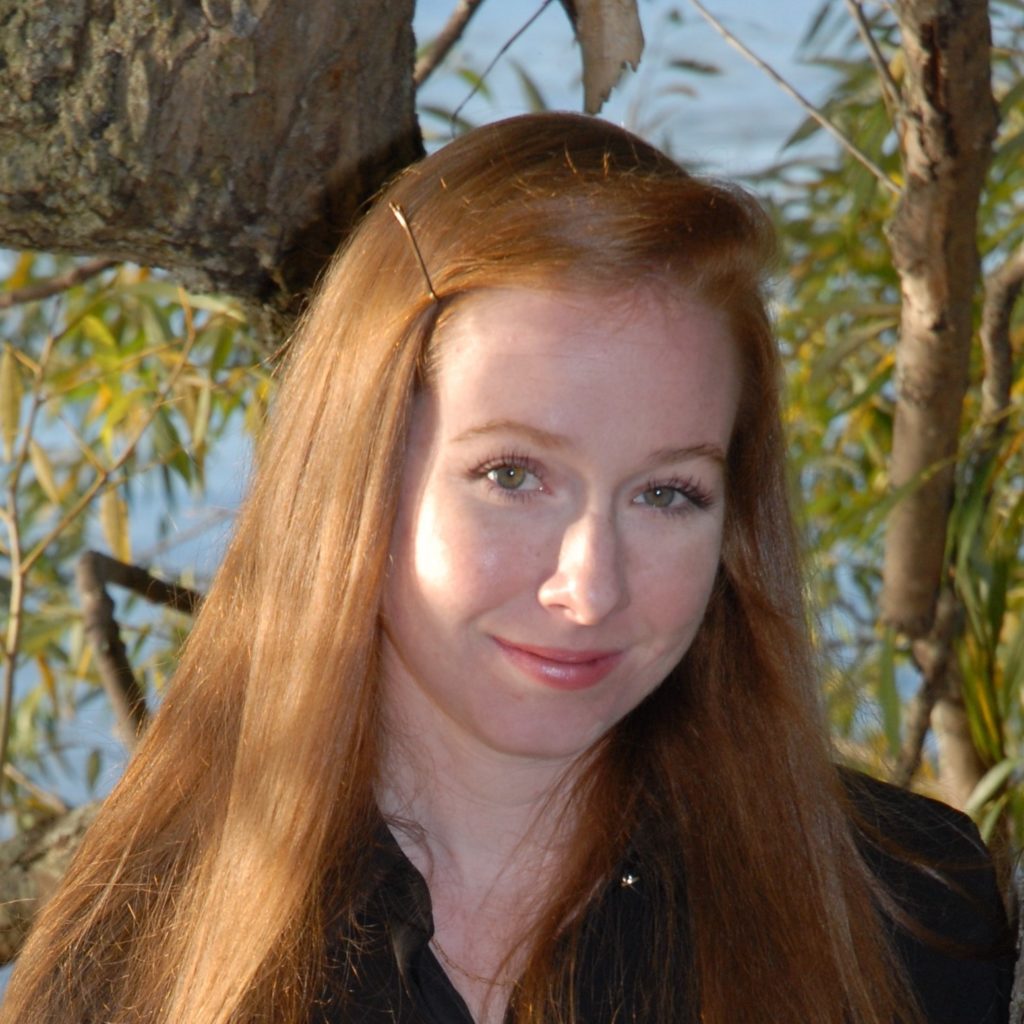Panelists
Ashlee Hope Bird (Western Abenaki of the Champlain Valley), Moreau Post-Doctoral Fellow, University of Notre Dame
Ashlee Bird is an Indigenous (Western Abenaki of the Champlain Valley) game designer who holds a PhD in Native American Studies. Her dissertation, “Representation and Reclamation: The History and Future of Natives in Gaming,” theorizes digital sovereignty, drawing on Native American studies, media studies, and game studies to address representations of Indigenous characters in video games. By first analyzing how colonial methodologies are replicated within game spaces, and then demonstrating where she and her fellow game designers have substituted in their place decolonial methods, Bird advances mediated relational strategies for cultivating and representing what she terms “synthetic Indigenous identity,” oriented around promoting Indigenous futures.
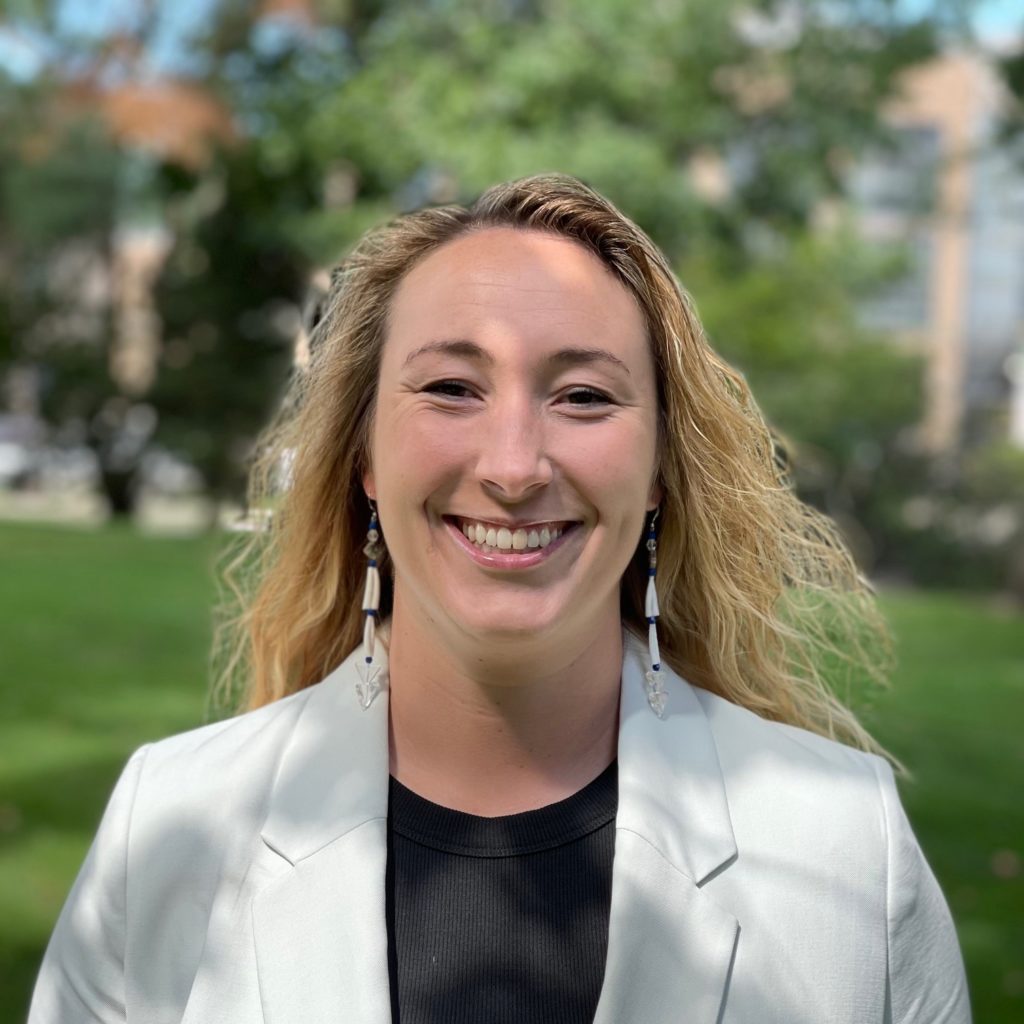
Meagan Byrne (Âpihtawikosisân, Métis, Ontario), Narrative Mechanic Designer and Owner, Achimostawinan Games
Meagan Byrne is an Âpihtawikosisân (Métis, Ontario) game designer born and raised in Hamilton, Ontario. Her designs incorporate narrative, game mechanics, sound and traditional art and are deeply rooted in Indigenous Futurisms, language and Indigenous feminist theory to explore questions of cultural belonging, the Indigenization of media and the future of Indigenous language and culture. Byrne’s theorization of “Read-Only” virtual spaces offers an example of digitized diplomatic refusal as a means of preserving sacred spaces from colonial appropriation. She was the first Digital + Interactive Coordinator at the imagineNATIVE Media Festival and is the current owner/lead designer of Achimostawinan Games, an Indigenous-run and staffed indie game studio.

Eleanore Flack 3D Environment Art Student and Developer of Growing Up Ojibwe: The Game, University of Wisconsin – Stout
Eleanore Flack is a student at the University of Wisconsin-Stout majoring in game design and development-art. She created Growing up Ojibwe: The Game during a summer internship with the Great Lakes Indian Fish and Wildlife Commission in 2019 and has since expanded the game. Mirroring her own experiences, such as harvesting wild rice and maple sap as a child descendant of the Oneida Nation, the game introduces a sustainable relationship with, and respect for non-human beings. Growing up Ojibwe: The Game simulates practices based in Ojibwe approaches, which emphasize care for the world so that the balance that sustains all players can be maintained for future generations.
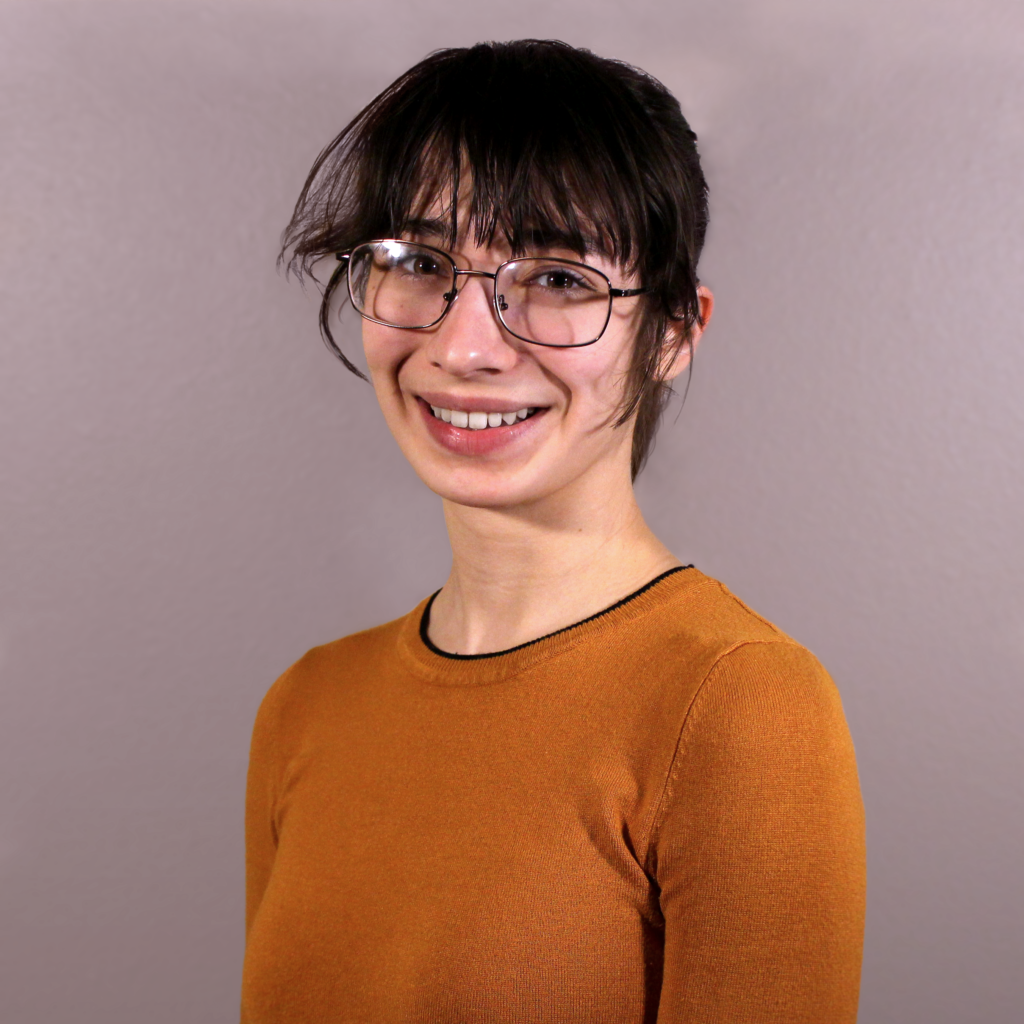
Samir Durán CEO and Producer, Bromio
Growing up in Puebla, Samir Durán’s early exposure to video games sparked a very close relationship with the medium throughout his childhood and adolescence. After studying engineering, Durán founded the video game studio Bromio, which develops high-quality content, and seeks to retain talented developers within the community. Currently, he serves as the Director of Bromio, a Mexican game studio, and is a part-time professor teaching video game development at the Universidad Iberoamericana, Puebla. One of the projects Durán has played a role in creating is Yaopan: Una historia de la Conquista, a video game inspired by the historical document Lienzo de Tlaxcala which recounts the historical encounter and conflict known as the Spanish conquest of Mexico from the perspective of the Indigenous Tlaxcaltecas. The production and launch of Yaopan is part of the National Autonomous University of Mexico’s (UNAM) Mexico 500 program, which aims to reflect on the plurality of visions conceived for Mexico over the past five centuries.
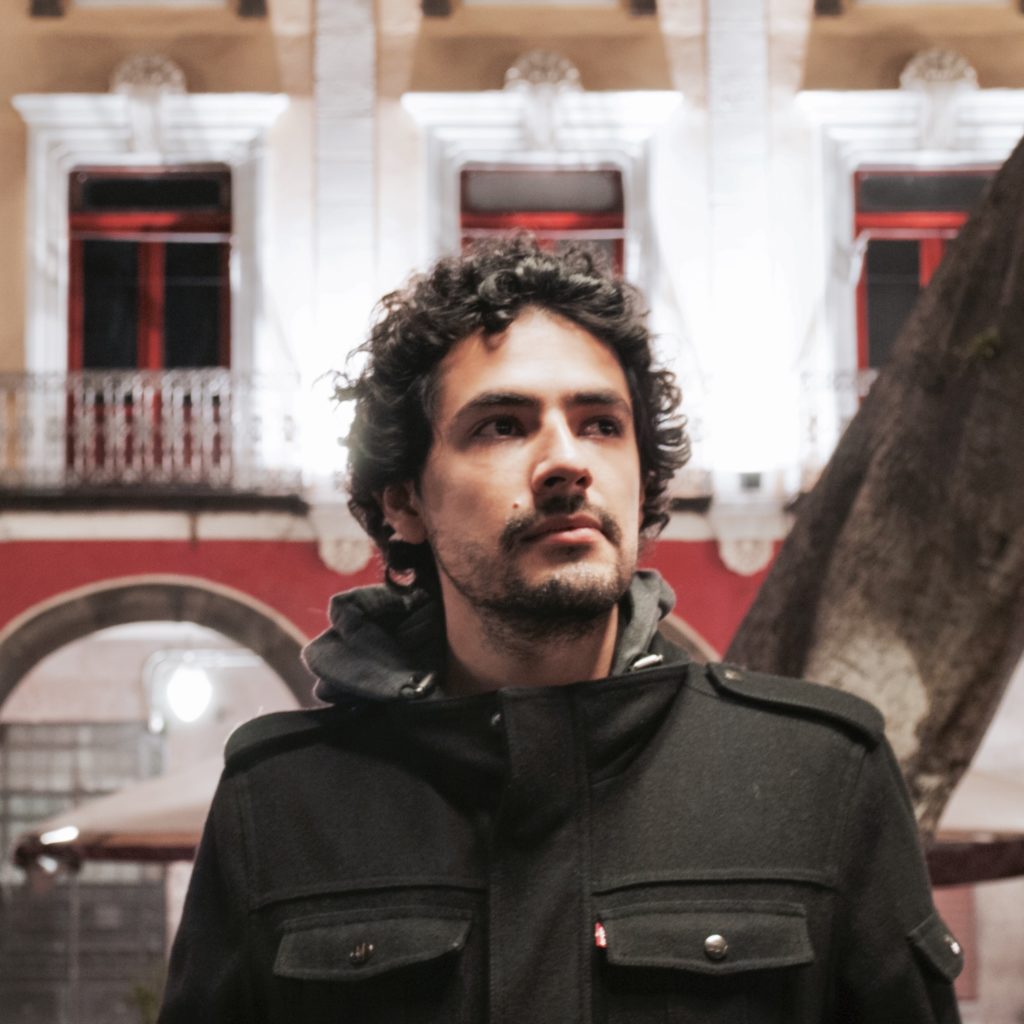
Kahentawaks Tiewishaw (Kanien’kehá:ka, Kanehsatake), Skins Workshops Associate Director, Initiative for Indigenous Futures (IIF)
Kahentawaks Tiewishaw is a Kanien’kehá:ka visual artist from Kanehsatake. Her practice includes 3D modeling, illustration, game making, and sculpture. She is also the Skins Workshops Associate Director with both the Aboriginal Territories in Cyberspace (AbTeC) and the Initiative for Indigenous Futures (IIF). In these roles, Kahentawaks fosters interest and skills in game developing among Indigenous youth. Her work reflects a commitment to sharing in the process of building video games that facilitate the healing of intergenerational trauma and serve as a vehicle for re-presenting contemporary Indigenous experience and possible futures.
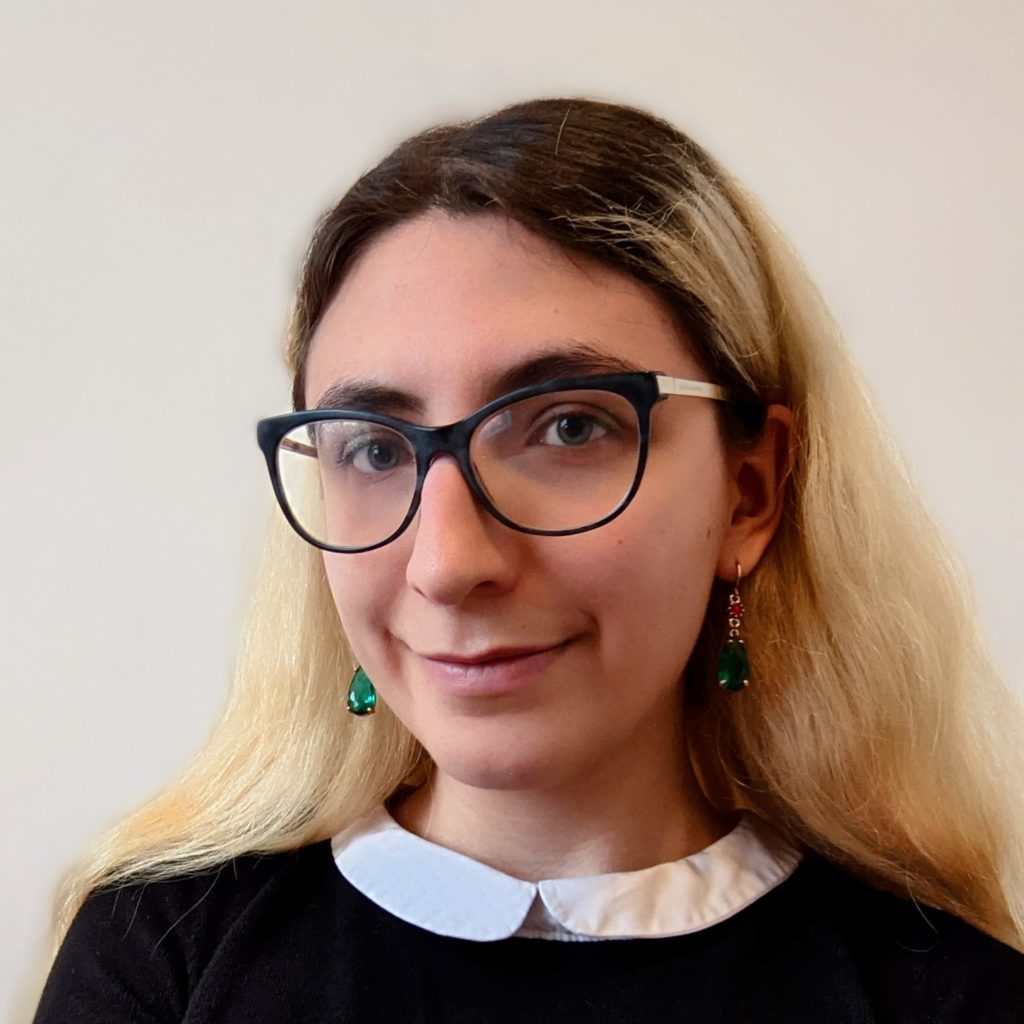
Moderators
Amanda Rodríguez Espínola Research Fellow, North American Cultural Diplomacy Initiative
Amanda is originally from Mexico City and has a Ph.D. in Media Studies from the University of Colorado Boulder. She holds a Master’s Degree in Public Diplomacy from the University of Southern California in Los Angeles and a Bachelor’s Degree in International Relations from the Universidad Iberoamericana in Mexico City.
Amanda She has served as President of the Association of Public Diplomacy Scholars as well as Editor of the Public Diplomacy Magazine, both housed at USC. She was a Research Fellow at the Center for Media, Religion, and Culture at the University of Colorado Boulder where she focused on religious diplomacy from the Vatican, Tibet, and Pentecostal groups in Brazil. In the corporate sector, she worked as a Research Analyst at the Annenberg Retreat at Sunnylands, where she developed proposals for public policy and cooperation to increase academic exchanges between the United States and Mexico. Her interest in entertainment-education led her to collaborate as a Researcher at the Norman Lear Center and t Wise Entertainment, analyzing the representation of minorities on television and streaming services.
Currently, her field of specialization is cultural diplomacy and digital media, working on topics like the use of video games and virtual reality as tools for cultural diplomacy. As a NACDI member, she is interested in applying a decolonial perspective to cultural diplomacy by highlighting the possibilities digital technology offers to create new, and strengthen already existing, networks of dissent that challenge the current Euro-centric approach. She has presented her research results at various national and international conferences and has several publications on public diplomacy. She has taught courses in Public Diplomacy, Public Relations, Storytelling, and Information Sciences.
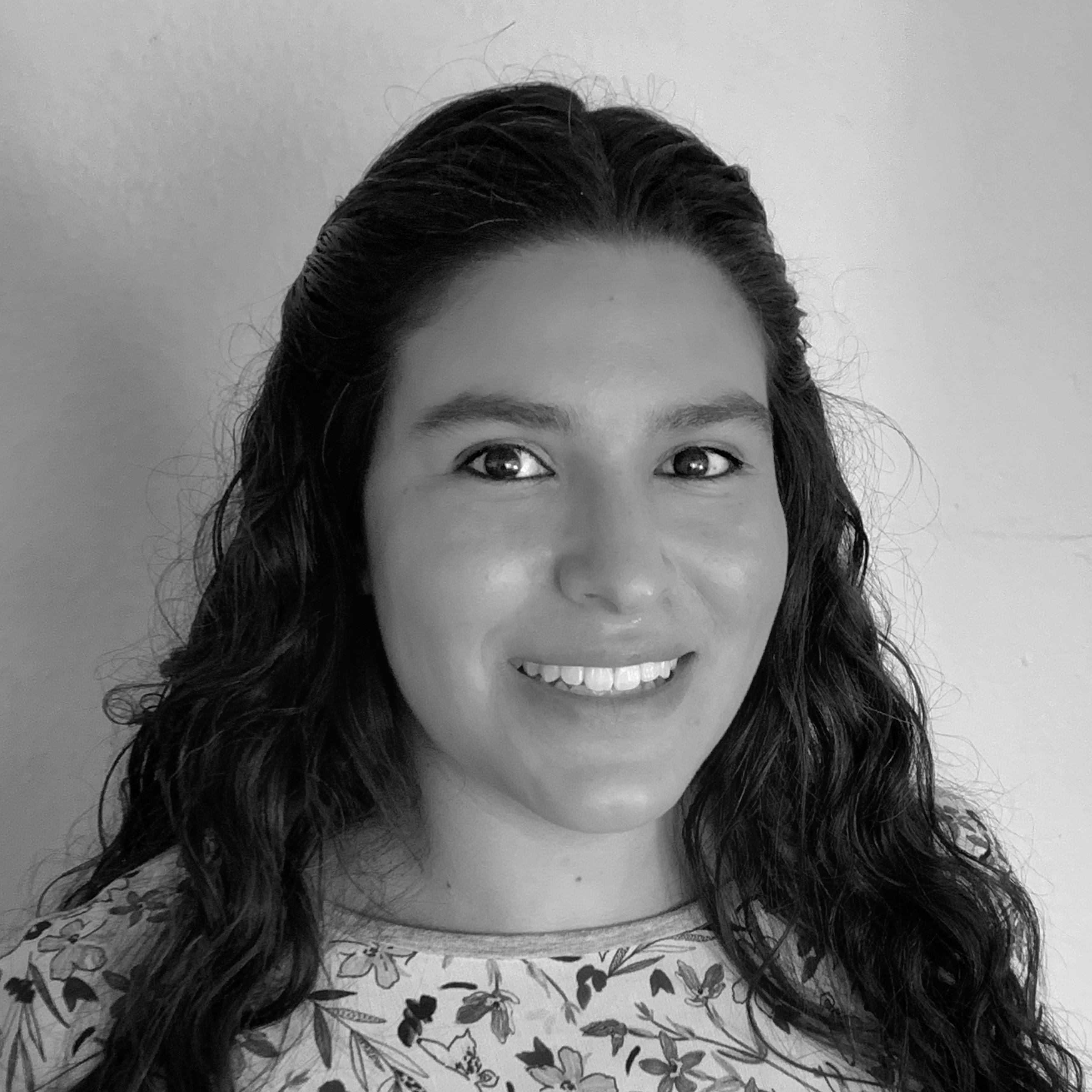
Amy Parks Ph.D. Candidate, Cultural Studies, Queen’s University
Amy Parks (settler-Canadian) is a doctoral candidate in Cultural Studies at Queen’s University and NACDI research fellow. She is the recipient of a Joseph-Armand Bombardier Canada Graduate Scholarship, which supports her research situated at the intersection of mass visual culture, sports, and identity in a g/localized context. Parks is particularly interested in the ways that games can, and have operated as spaces of engagement, exchange, representation, and refusal for players and audience members alike. Her approach to these topics advance a critique of the capitalist and settler-colonial logics from which modern sports have developed, and an examination of the possibilities of cultural play that challenge such logics.
